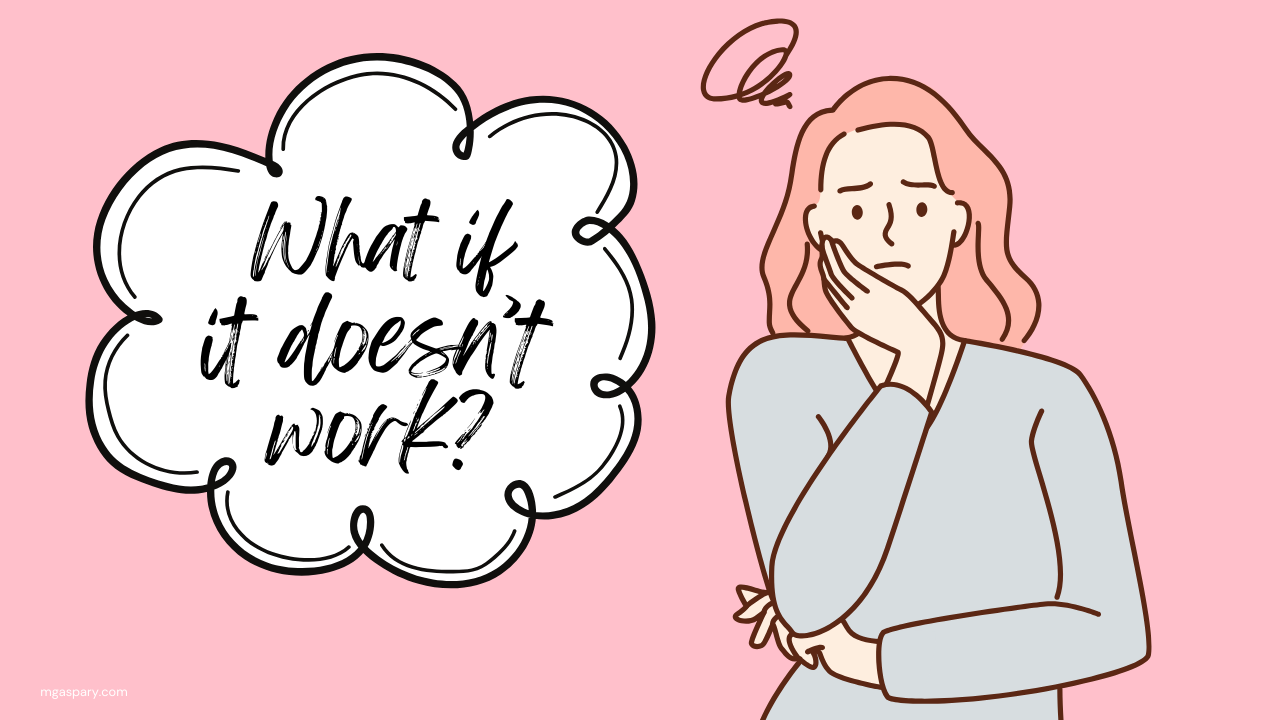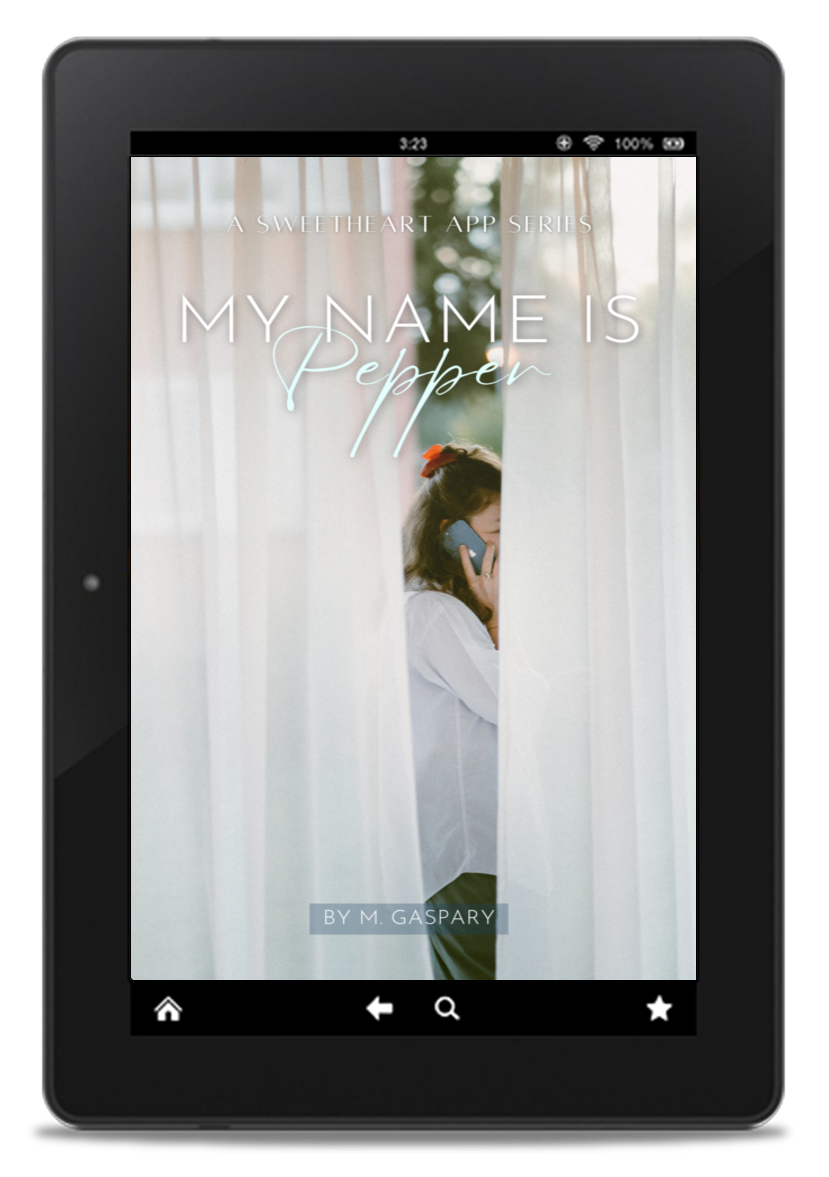We all have experienced the nocebo effect at some point in our lives, even if we are non-patients.
Table of Contents
- Nocebo Effect in Action
- How to Overcome the Nocebo Effect
- Understanding 3 Layers of Yourself
- Final Thoughts
Opposite to the placebo effect, the admitted patients, especially those who have risky diseases, tend to have negative physical symptoms or side effects to treatments, which eventually leads to worsening medical situations instead of relieving or alleviating the adverse effects of their conditions.
For example, if you are diagnosed with cancer (hopefully not), obviously, you want to submit yourself to chemotherapies and a doctor’s advice. You wish to remove it from your system as much as possible.
Right?
But not for all of us.
Nocebo Effect in Action
According to MedSafe, they mention that there is a core reason for the nocebo to exist in the medical dictionary. In contrast to the placebo effect, people believe that any medical intervention would only lead to detrimental side effects. Derived from the Latin word “to harm,” it implies that “patients are more likely to experience an adverse effect if they expect or are worried about the adverse effect.”
In other words, even if proven and tested, the treatments could potentially cause more harm than cure. Jorge H. Daruna, in his article called “Introduction to Psychoneuroimmunology (2nd ed.), published in 2012, writes that this undermentioned phenomenon arises when there is an expectation of sickness or even death as an outcome. He adds that the “power of belief operates also in negative outcomes.”
So why does the nocebo effect exist in our society, and how does its discreet presence in your lives actually impact your self-worth? Is it really limited within the hospital walls, or does it affect everyone, including you, a non-patient? And what can you do to overcome it?

How to Overcome the Nocebo Effect
First, you need to look at three things in your day-to-day life.
- Your daily dread
- Your external stimuli. Just like the yin and yang, our lives will always be two-way streets.
Going inward: Your daily dread
Just like hospital patients, you feel the dread, routines, and mundane, as if there is no tomorrow to wait for. This is the first direction or flow of that energy. If this is how you feel all day long, no wonder you’re feeding your subconscious and unconscious with the thought—an expectation, to be exact—that nothing ends well after all.
Even if your conscious mind says it’s alright, something else needs to be repaired deep down inside you. There is this deep-seated belief about yourself. This self-loathing habit creates a constant atmosphere where souls die.
In Daruna’s article, he says that the nocebo effect can also include “Voodoo death” or deaths caused by the influence of your belief, wherein deep down in your soul, you believe you are powerless and weak to fight against demons. He adds that the individual must believe 100% that a witch’s curse causes his miserable life and worsening medical conditions.
Another example would be my Aunt Almera (not her real name), my mother’s eldest sister. Three years after his daughter’s death, she’s been in and out of the psychiatric clinic until this year when the doctor figured out about her cancer. Now, while I’m writing this, she’s there with her children and the rest of the family, waiting for her death.
Even though she hadn’t gotten sicker than her other sister (who had already been ill and on regular diabetic medication), her disease took a sudden sharp turn.
All because of the same thought. The same noceboic belief that kills anyone.
Going outward: Your external stimuli
This brings us to the next point, which is psychosocial stress as an additional element to the nocebo effect—the second direction of that energy.
Aside from your unconscious beliefs about yourself, your environment will add to your already simmering blood. Your conceptual identity, collective identity derived from your nationality, family culture, trained skills from your alma mater, friendships, political views and affiliations, and professional acquaintances all play a vital role in creating toxicity in your life.
According to Dan P. McAdams of Northwestern University, your programmed traits and roles vary, and they all play significant roles in your life as a social actor (more about this later).
Your primary concern would be,
- What can you do to become a better son or daughter?
- How can you find new and meaningful roles in every facet of your life?
For instance, you’re so concerned about your social reputation, which includes how others think of you when you do this and that, when you choose this and that. You prevent yourself from doing this and that because you fear disharmony within your groups.

Overcoming expectations
Expectations created by those around you will continue to push you nuts. If you’re the black sheep, I bet you’ve endured the painful, stabbing words from your family’s mouths in silence while unconsciously harboring those painful experiences as emotional baggage. Heavy baggage, honestly. It was so heavy that you wouldn’t know if you could take another step with it.
Surprisingly, you’ve carried it all the way… with ease and grace. It is as if nothing is happening inside you, as if you’re okay. But you know that deep within, you’re feeling this undeniable dread. And you don’t have any explanation for it
You simply feel like whatever you do, regardless of your effort, you will always expect the worst. You will always feel like you don’t deserve to be healed, to experience the bliss and joy of being pain-free and carefree. Unlike those patients in their hospital beds, you’re outside and free.
Ironically, you’re still not… well, free.
Because within you, you have the nocebo effect swallowing you whole. It doesn’t even matter if you’re a janitor, a bus driver, or a CEO. Underneath the fancy and bullshit, you know the truth within. The expectations people have on you can tear you to pieces if you let them.
And you did. You successfully did. You have, indeed, let them invade you for a while.
You have tried your best to excel and become the best in your field; whatever it is you’re expert at, unconsciously attaching your worth to what you do, thinking that your success means a lot to you.
Still, regardless of what other people say about you, you feel like shit. Because you think you don’t deserve the good things in life. The cure for your lifelong disease, the loneliness that you’ve always felt deep down inside you. You don’t want to face it. Confront it with pride and valor.

Flipping toxic self-belief like a child
Think about it. Do you really believe that your life is cursed when you have the power to harness that potent energy within you?
If you only believe that you can, you will. Even if you start slow and sloppy, the more practice and nurturing you give, the better you will become.
Everyone is a child once. We all slipped and fell. Our knees and legs have collected enough bruises and wounds to learn how to walk and move forward in life. That little girl had help from others (parents, titos and titas) to stand up and keep her inside the gate to keep her safe.
That child had never thought, not even once, that she wouldn’t walk. All she thought was to reach that destination—wherever it was, she wanted to reach, unapologetically.
That child never thought she couldn’t talk. Whatever she wanted to express, her thoughts and feelings, she would say it right there, unapologetically. Loud and clear.
However, when she became an adult, a beautiful, successful professional, years later, that same child found herself lost. Unable to move in life and express herself for who she is and how she wants to express herself?
Underneath the independence was codependency in the making.
How can that same child, now with a grown-up, well-developed brain, think she couldn’t ever recover from this direless situation when she survived the wounds and bruises when she was young? When her arms and legs were ten times smaller than hers now?

Realizing generational trauma
Do you see how the nocebo effect creeps into your life without letting you know? Have you ever realized that before? How does its silent toxicity create a thick blob of dread that soon swallows your unicorns and child-like dreams?
Then, imagine that disease creeping into people’s lives for generations. Think of your parents who have suffered with the same thing, your grandparents, great-grandparents, and so on.
Can you visualize how thick that black blob lurking within your family is? Can you see its size and imagine its size and taste?
Now that you’ve realized what the nocebo effect actually is, it is important for you to ask yourself about your habit of negative thinking and how you learned that life is dangerous and dark. Study your beliefs and where they came from.
For example, I learned that my self-limiting belief came back to my ancestral line, which suffered the consequences of Spanish colonization in the 15th century. Upon research and dialogues with the old folks in the family, I realized that mental health wasn’t a concern or had given enough care to comfort those who needed it.
Instead, some chose to keep it a secret for fear of being ostracized. One story about a great-granduncle caught my attention because I remember my mother describing him as someone whose “mind turns counterclockwise” (literally translated from my mother tongue).
You know what she meant.
Whenever his mind turned counterclockwise, he would run to the market with a broom in hand and sweep the entire street. If disturbed, he would be screaming like a child in tantrums.
And no one cared about sending him to a psychiatrist or showing proper care. Other families would have chained him and caged him like a dog.
I can tell you more relatives who suffered a lot simply because they didn’t have the right support at that time (in the 1960s, Philippines). All of them had no support at all. All of them had no clue about mental health or that it existed.
When my grandmother died young (only 33 years old), bringing with her an 8-month-old unborn baby, my grandfather didn’t have anyone who could share his grief and move forward healthily. In his late forties, he’d lost a wife and a son. With four young girls at hand, he surely was in a traumatic situation. But no one talked about it, nor did he open up about it years later.
Since then, no one in the family has ever sat down on what actually happened to them or dared to speak about their true feelings and thoughts. It seems that everyone has moved on as if no one had died, not even when my grandfather took his life in the late 1980s (20 years later after my grandmother died).
With all these experiences, I learned that if I continually repress those negative emotions, it feeds my unconscious, which then, later, becomes actions and words that would cause harm either to myself or others.
If I continue to deny the pain and demand grief requires me, things will only end up bad. The outcome that I definitely don’t want to have; thus, it forces me to look within and examine where this thick blob of dread came from.

Understanding 3 Layers of Yourself
In his module, McAdams writes about the central psychological question of selfhood. It basically answers the question, “How do I understand who I am?” which then begs you to study yourself in a way you hadn’t done before—in layers.
But first, you have to understand that all of us have at least three (3) roles to play in life:
- You, as a social actor
- You, as a motivated agent
- You, as an autobiographical author
You, as a social actor
He mentions how your life will always be linked to how you present yourself to the world. This is you being a social actor in action because the ‘Self’ is inherently reflexive. When people talk about you, good or bad, we react, good or bad. How you perceive yourself as an individual, as a soul, affects how you satisfy the “I” and “Me” within you.
“Imagine for a moment that you have decided to improve yourself. You might, say, go on a diet to improve your appearance. Or you might decide to be nicer to your mother, in order to improve that important social role,” McAdam writes.
This often emerges when you reach 18 months old and recognize yourself in mirrors. When you finally learn your identity, the name your parents gave you, you, as a soul, unconsciously embody the actor, playing a distinctive role in this society. Whatever it is.
“When I do thinking that win the approval of others, I feel proud of myself. When I fail in the presence of others, I may feel embarrassment or shame. When I violate a social rule, I may experience guilt, which may motivate me to make amends.”
— McAdams
You want to cling to the image your parents, family, and culture had given you. If you’re a family of singers, your life was destined for a path and that path only. There is no way around it. The same is true for doctors and those high-profiled in their community.
As an adult, you may have identified yourself as this and that without ever questioning its validation and truthfulness. You may have never questioned and examined those beliefs and cultures you’ve learned all those years, thinking everyone’s doing it anyway. And simply because everyone’s doing it, you think they’re okay and perfectly normal.
So why should you change? You ask.
Shakespeare once observed this instinctive urge to belong to a social group, thinking that being part of that circle makes you feel whole. And each of us plays the same role. As he said, “All the world’s a stage, and all the men and women mere players.”
You, as a motivated agent
For lack of a better example, allow me to use myself and my current situation to better describe how your inner needs, wants, desires, goals, values, plans, programs, fears, and aversions can impact your decisions and future.
As a child, I believed I had to constantly prove myself through accomplishments. This belief is rooted in my childhood belief that I had to constantly exert effort to achieve excellence.
I knew bringing medals home would make my parents, especially my mother, happy. They expected excellence from me on big and small projects, nothing else.
“You’re bringing our family name,” my father would tell me. Therefore, it was understandable for me early on what they’d wanted from me as a kid.
That false belief has granted me this dark chapter wherein I almost took my life, thinking that I couldn’t take tomorrow anymore. Unlike my yesteryears, I wasn’t happy, feeling like I was a complete failure and had failed everyone. I wasn’t at the top but rather below in the abyss.
“Because she was every mother’s idea of a ‘perfect daughter,’ she grew up wearing this mask her mother wanted her to put on. She didn’t want anyone to see or who she was, thinking there was nothing about her. Nothing interesting. Not worth the attention. Too ambitious to befriend. Too unreachable.”
— Excerpt from my article
And because I failed as a freelance writer, I thought I also failed in life. It was enough of a reason to consider death as an option because deep down, I couldn’t bear the weight of shame, doubt, embarrassment, and guilt when I faced them. I couldn’t bear telling the world how fucked up I was.
My ego wished to run away and chose to cease to exist. For me, there was no other way around it.
The nocebo effect was obvious when my husband tried to intervene with his usual gentle Cancerian care. We both believed that I could overcome CPTSD through talk therapy, knowing we didn’t have enough resources to seek professional help.
I was his Patient #1.
Despite his efforts, I thought, at that time, he was trying to make me go even crazier than I already was. Little by little, I realized that what he was trying to do was teach me how to expand and shift my distorted understanding of the world and how that deep-seated childhood trauma had caused me so much pain as an adult.
If he hadn’t done that and if I hadn’t been willing to participate in his “game,” I don’t know where I would be right now. Maybe I would still be stuck in the rut, paralyzed, and unable to move a foot forward.
The point is I have to be aware of it. It doesn’t mean that I won’t be depressed or that suicidal ideation was completely gone in my life. They’re still there in the background, whispering, unlike before.
Until now, I’ve been writing journal entries almost daily to record every little thought that came to my mind, good and bad. Over time, when I re-read those pages, I learned how the nocebo effect can actually poison someone’s mind like that.
At the same time, I realized that I need to shift my perspective from perfectionism to a nonjudgmental perspective, which also means reprogramming the mind I earned from my caregivers.
Of course, I cried a lot. When I released that baggage into the manuscript, overwhelming emotions and tears flowed from my eyes. My body shook, and my anxiety skyrocketed for ten minutes that felt like forever. I was in a completely powerless situation.
But in my mind, I knew I had to do it. Because I don’t want to hurt the people I love anymore, including myself. The ‘Self’ that I have ignored and neglected for a long, long time.

You, as an autobiographical author
You must go back to your earliest memories and write a journal entry about them. This is your first step in selectively rewriting the construct of your past to impact the present and pave the way for a better future.
First, you have to understand the value of a strong narrative identity. What is it, and why is it necessary for you to create it for your well-being?
Here’s a quote from Erik Erikson:
“To be an adult means among other things to see one own’s life in continuous perspective, both in retrospect and prospect. By accepting some definition of who he is, usually on the basis of a function in an economy, a place in the sequence of generations, and a status in the structure of society, the adult is able to selectively reconstruct his past in such a way that, step for step, it seems to have planned him, or better, he seems to have planned it.”
To overcome the impacts of the nocebo effect in your life, you have to do this first, just as Erikson did in his ambitious study in the 1950s, wherein he examined Martin Luther’s case (not the famous Martin) and traced his childhood life to his current life.
When he finally had collected enough data to figure out who this guy was, he realized that this man was suffering from an identity crisis. The predominant religious beliefs and his roles to play had largely contributed to this existential threat, which he calls the “problems of human existence.”
The study also explains that because of this unhealthy relationship with his father, characterized by doubt, shame, and guilt, he wasn’t able to develop a strong sense of basic trust. A trust in himself.
In other words, Martin, underneath his charisma and talent, didn’t know who he actually was and struggled to figure out his life. He projected his hate towards his father onto his mother and God. Plus, the melancholic mood of his time exacerbated this ongoing emotional and spiritual trouble.
Sad, right?
Remember. This was back in the 1950s. We’re in 2024 and still have the same problems.
Reasons?
Erikson explains, “The strict rules and harsh punishments affected his sensitive side so severely, great expectations from his father who wanted him to become a lawyer, and his scrupulous and melancholic problems.”
Does that ring a bell to you? Does his story sound familiar?
Final Thoughts
So, what’s in it for you?
It’s time to move on and take a step forward by acknowledging yourself, good and bad. Learn how to study how you feel and think, how your mind and heart work together, and how your body feels in each particular situation without any influence from external stimuli.
If you’re brave enough to become your own autobiographical author, you will want to begin studying your life in layers and depths in a way you haven’t done before. In my case, I turned my painful stories into fiction, which is now available as eBooks and print books worldwide. See me on Amazon and Goodreads.
Start to understand how you actually navigate this world despite your struggles and painful history. Make this a chapter in your life where you consider self-reflection to wake up the sleeping soul residing with you. It’s time to listen to the call of your heart and her little whispers.
If you plan to turn this painful story into an inspiring book, just as I did with my own childhood trauma, you can use my Ultimate Book Writing Planner to start.
Finally, give your soul the chance to speak. 🙂
If this resonates with you and you have questions and concerns, let me know in the comment section below. See you in the next one. Tschüß!




Leave a Reply